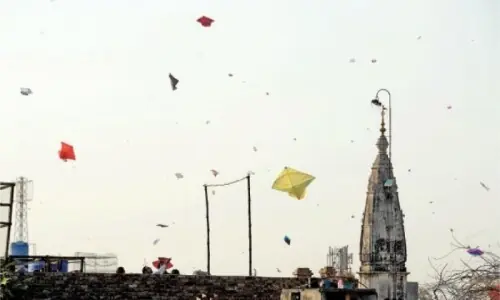
KARACHI: A US State Department official in a meeting urged President Asif Ali Zardari against accepting Iran’s offer of concessional oil for Pakistan and providing Iran with a foothold in Pakistan, a ‘Secret’ American diplomatic cable made available to Dawn reveals.
The meeting between Richard Boucher, US Assistant Secretary of State for South and Central Asia during the Bush administration, and President Zardari took place on October 18, 2008 at the Aiwan-e-Sadr, during which Mr Zardari apprised the visiting official of the Iranian offer that the President “did not believe he could refuse.”
“How could he go to the National Assembly and tell them Iran had offered the assistance and Pakistan had turned it down, he asked rhetorically,” the then US Ambassador to Pakistan Anne W. Patterson wrote in the cable dated October 22, 2008, referring to President Zardari. She added that, “Boucher reminded him of Ambassador Haqqani’s recent conversation with Deputy Secretary Negroponte in which the Deputy cautioned against providing Iran with a toehold in Pakistan.”
The cable illustrates how US officials tried influencing Pakistan’s policy not only with regard to Iran but also indicates how and with whom Pakistan had been dealing with at the time in order to meet its energy requirements. The American caution about Irani oil is consistent with the US government’s efforts to isolate Iran both militarily and economically.
The oil offer was discussed months after Pakistan’s Economic Coordination Committee (ECC) had approved the revised gas purchase agreement between Islamabad and Tehran for the import of gas through the Iran-Pakistan gas pipeline (formerly the Iran-Pakistan-India gas pipeline). The US has continually expressed its reservations over the project from which India withdrew in 2008.
Months after the talks with Mr Boucher, President Zardari, in a discussion with a Congressional delegation headed by US Senator Patrick Leahy, again referred to Iran’s offer to provide “oil, gas and electricity to Pakistan”, another cable dated May 26, 2009 by Ms Patterson detailing the meeting states.
Mr Zardari told the delegation during the May 25, 2009 meeting that “Pakistan desperately needed energy resources” and that “no on else - especially the Saudis” was ready to help. However, in a possible attempt to please the delegation, he went on to say: “I need you more than anyone else, so I will take my cue from you. Perhaps now it will be possible to work with Iran on energy issues.” Interestingly, however, Ms Patterson noted in the cable that President Zardari asked for the “cue” a day after he and Iranian President Mahmoud Ahmadinejad had signed an inter-governmental framework declaration to support the Iran-Pakistan gas pipeline agreement between the oil ministries of Pakistan and Iran.
Moreover, around the time of the Boucher-Zardari meeting, along with pursuing the Iran gas pipeline project, Pakistan was in talks with the Chinese government over a deal to build two additional nuclear power plants for the country, once construction of the Chashma II reactor was completed. A contract to cooperate in building the two new nuclear reactors, commonly referred to as Chashma III and IV, at the Chashma atomic complex was eventually signed on June 8, 2010. The development occurred despite misgivings on part of the US and other governments which have every now and then stated that China should seek approval of the reactors from the Nuclear Suppliers Group, a group of nuclear supplier countries that seeks to reduce nuclear proliferation and of which China is a member.
On the other hand, the US government was almost simultaneously in touch with Saudi officials regarding Saudi-Pak negotiations to assist Pakistan “by deferring crude oil payments”, a previously published cable dated July 30, 2008 states. It further states that if the US government assessed that a “rapid implementation” of the Saudi offer was “critically important to the Pakistan government’s stability, it will likely take USG intervention at the highest levels with senior Saudi officials…to secure its rapid implementation.”
Cables referenced: WikiLeaks #174700, 208526, 164170


































